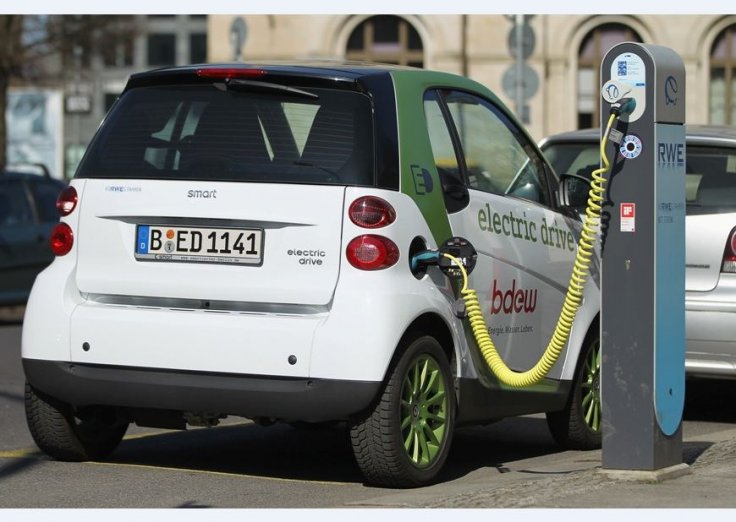
Electric cars are sold more in China than any other part of the world. Chinese government provides huge amount of subsidies to the local branded electric vehicle (EV) makers as part of Beijing's policy to build global leadership in cleaner energy. And these local branded EVs are far cheaper and have a shorter range than the ones offered by the behemoths such as Tesla and Nissan.
China has spent billions to help companies including Warren Buffet-backed BYD and BAIC Motor to achieve extensive production of plug-in vehicles, which are gaining traction among the urban drivers as well the taxi fleet companies. Another reason of plug-in vehicle popularity is that most of the Chinese cities tightly control license plates for traditional gasoline cars, but freely award plates that can only be used by plug-in vehicles.
Sales of battery electric and plug-in vehicles this year stood at 402,000, and by 2020 China wants as many as five million such vehicles on road. The domestic EVs don't really have that 'wow' factor in terms of speed, long-range or style. They sell on price.
In Shanghai last year, a two-door battery electric Chery eQ cost around 60,000 yuan (S$12,400) after subsidies. Without subsidies, the eQ would cost an additional 100,000 yuan or so. At this week's Detroit Auto show, General Motors showed off its latest Bolt EV, which costs around $30,000 after a $7,500 federal tax credit.
According to the citizens EV cars are cheap and it is perfectly fine if one uses it within 100kms and that's exactly what they do, like going to work and coming back. Most people can't afford to spend a fortune to get a Tesla or Denza to show off, they just by it as a transport tool.
As Mr Zhang Dawei, CEO of EVBuy (a dealer) says, most Chinese electric cars come with similar specifications, so price is the deciding factor. The eQ has been the top seller in recent months, with decent enough quality at a low price, he said.
Apart from that, China's cocktail of pro-electric policies is a challenge for global automakers, as foreign manufacturers can access subsidies only via joint ventures with local partners, producing cars under new made-for-China brand names such as Denza, which is a Chinese brand produced by a joint venture between BYD and Daimler. But these hybrid brands lack the brand value of established foreign brand names and cost more than most local brands even after subsidies.
That's in part because Chinese automakers are more aggressive in lowering their costs regardless of quality, said an executive at a multinational auto parts firm. The version of the Leaf that Nissan's joint venture with Dongfeng Automobile offers in China, under the Venucia brand, "isn't selling very well", Nissan's global chief Carlos Ghosn told Reuters in November, 2016.
Chinese EV buyers don't want to spend much more than US$8,000 (S$11,400), after incentives, and the Nissan vehicle is too expensive, Ghosn said. The playing field for foreign brands in China should, though, gradually even out as subsidies are phased out by 2020.
While China has been able to grab early-mover advantage, global automakers plan to quickly ramp up their plug-in offerings in the world's biggest market. GM's local joint venture, for example, promises to spend 26.5 billion yuan ($3.8 billion) on electrification and developing 10 "new energy" models by 2020.
Chinese brands such as GAC Motor and BYD are looking to advance on global rivals' home turf. "Because Chinese companies have this large Chinese market, when they have big enough scale and their power grows, their products improve and they increasingly understand foreign markets," Li Yunfei, BYD's deputy chief of branding and public relations said to Reuters. "In the future, they will definitely take the world stage. The potential is huge," added Li.









